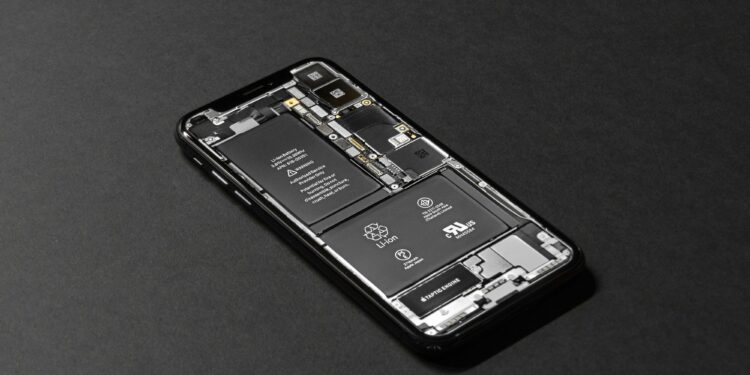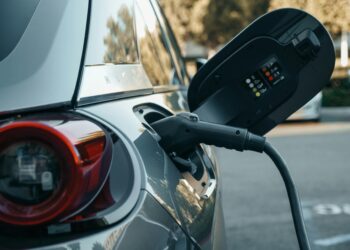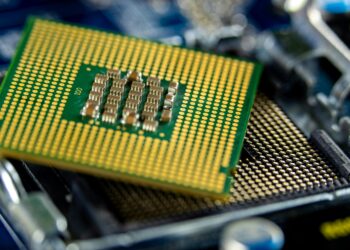The Imperative of Enhanced Energy Storage for Advanced AI Capabilities
The recent Worldwide Developers Conference (WWDC) by Apple (AAPL) showcased a series of remarkable advancements in artificial intelligence (AI) technologies integrated into smartphones. These include enhanced versions of Siri, advanced writing tools, voice transcription, and image generation capabilities. While these innovations promise to transform our interaction with devices, they come with a significant drawback: increased power consumption. According to a study by Tirias Research, running AI applications like ChatGPT3 and Llama 2 can consume 2 to 11 times more battery life than watching videos on YouTube. This dramatic increase in energy demand underscores the urgent need for radical improvements in smartphone battery technology, a need that companies like Enovix are poised to address.
The Security Angle: On-Device Processing and Battery Demand
A notable highlight from Apple’s announcements was the emphasis on security through on-device processing. Elon Musk recently expressed concerns about Apple’s ability to protect user privacy with OpenAI integrations, suggesting that Apple devices might not ensure adequate security and privacy. Apple’s response focuses on running many AI models directly on the device rather than relying on cloud computing, with only the most complex tasks being offloaded to private cloud compute. This approach enhances security but significantly increases the power demand on smartphones, further emphasizing the necessity for more advanced batteries.
Silicon Anodes: The Future of Smartphone Batteries
The growing power demands of AI applications on smartphones cannot be met with current battery technologies. Conventional battery improvements, primarily achieved by increasing battery size, are reaching their practical limits. The real breakthrough lies in enhancing battery energy density, which has only grown at a modest 4% compound annual growth rate (CAGR). Enter silicon anodes—a game-changing technology that promises to deliver the step-change improvements needed in energy storage.
Enovix (ENVX), an innovative player in the battery ecosystem, is leading the charge with its 100% silicon anode technology. Unlike traditional graphite anodes, silicon anodes can store significantly more energy. Enovix’s EX-1M and EX-2M batteries, set for release in 2024, are expected to be the first in the world to utilize this advanced technology, offering approximately 18% and 30% more capacity, respectively, compared to their predecessors.
The Demand Surge: AI’s Growing Power Consumption
Tirias Research projects that global generative AI usage—including text, symbols, images, and videos—will grow by up to 150 times between 2023 and 2028. The study also revealed that AI-enhanced video capture on flagship smartphones consumes over 50% more battery life than standard video capture. This escalating demand for power from AI applications highlights the need for batteries with higher energy density and better performance.
Silicon Anodes: Overcoming Traditional Battery Limitations
Current batteries predominantly use graphite anodes, which have limitations in energy density. Graphite can only bind one lithium ion per six carbon atoms, while silicon can bind four lithium ions per silicon atom. This fundamental difference means silicon anodes can potentially store up to 10 times more charge per volume than graphite anodes. Additionally, with most graphite mining and processing concentrated in China, there are geopolitical risks that silicon, being the second most abundant element on Earth, can help mitigate.
Enovix’s approach of using 100% silicon anodes stands out as it fully leverages the material’s benefits, unlike traditional methods that mix a small percentage of silicon with graphite. This innovation could significantly enhance battery performance, making it a crucial technology for the future of AI-enabled smartphones.
The Role of Partnerships in Battery Innovation
Enovix is not alone in this endeavor. The company has partnered with Group14 Technologies, known for its proprietary silicon-carbon composite material, SCC55. This collaboration aims to combine Enovix’s unique battery architecture with Group14’s advanced materials, promising a significant leap in battery performance. Such partnerships are essential for accelerating the adoption of silicon anode technology across various applications, including consumer electronics, electric vehicles (EVs), medical devices, and aerospace and defense.
The Road Ahead: Scaling Up and Market Acceptance
As Enovix scales its manufacturing capabilities, the market acceptance of its novel battery technology is expected to grow. The EX-1M battery, with its enhanced cycle life and fast-charging capabilities, is particularly suited for the increasing power demands of AI applications. The anticipated safety improvements and higher energy density are features that consumers are likely to value highly.
Looking forward, while the initial focus will be on consumer electronics, the scalability of silicon anode technology could eventually extend to the EV market. Although this transition may take several years, the potential for silicon anodes to revolutionize energy storage across multiple sectors is significant.
Conclusion: The Necessity of Better Batteries for AI-Enabled Smartphones
The integration of advanced AI capabilities into smartphones is a double-edged sword. While it enhances functionality and user experience, it also places unprecedented demands on battery life. Companies like Enovix are at the forefront of addressing this challenge with innovative battery technologies that promise higher energy density and better performance. As AI applications continue to grow, the development and adoption of advanced batteries will be crucial in ensuring that smartphones can meet the power demands of the future while maintaining security and performance.
You might like this article:Why Airship AI Holdings and CuriosityStream Stocks Are Skyrocketing











